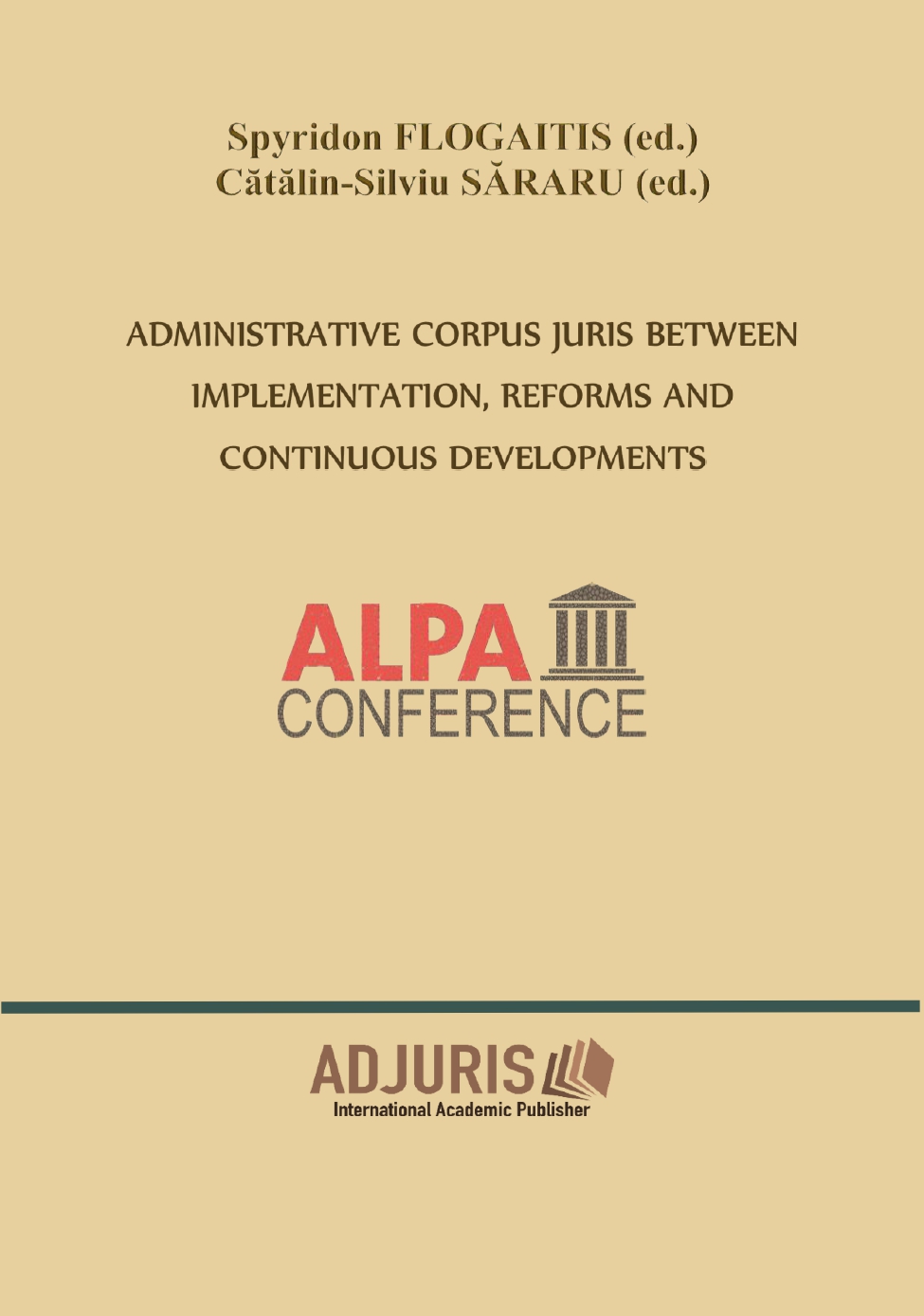The effects of judgments on the suspension of normative administrative acts and their concrete consequences
The effects of judgments on the suspension of normative administrative acts and their concrete consequences
Author(s): Anamaria Groza
Subject(s): Politics / Political Sciences, Law, Constitution, Jurisprudence, Public Administration, Public Law, Administrative Law
Published by: Societatea de Stiinte Juridice si Administrative
Keywords: normative administrative act; suspension of enforcement of the administrative act; erga omnes effects; inter partes effects; res judicata authority;
Summary/Abstract: The judgments ordering the suspension of administrative acts, whether individual or normative, have effect only between the parties to the dispute in which they were given. If in the case of individual administrative acts, this effect is fully justified, in the case of normative administrative acts, the situation becomes problematic. The study aims to analyze the legal basis of the two proposed solutions regarding the effects of judgments ordering the suspension of normative administrative acts: inter partes effects vs. erga omnes effects. The research conducted is descriptive and explanatory, supported by relevant case law and doctrine. If a normative administrative act has been suspended by the court (all the more so when the judgment has become final), that act might be suspected of illegality. In this case, one of the three presumptions on which its enforceability is based, the presumption of legality respectively, has been temporarily removed. The principle of the legality of administrative acts justifies the removal of the enforcement of this act also in relation to the persons who did not have the quality of party, but who can bear the consequences of a seemingly illegal act. At the same time, the specifics of the normative administrative act, as well as the principles of the predictability of the law and legal certainty, argue in favour of this solution.
- Page Range: 13-24
- Page Count: 12
- Publication Year: 2022
- Language: English
- Content File-PDF

